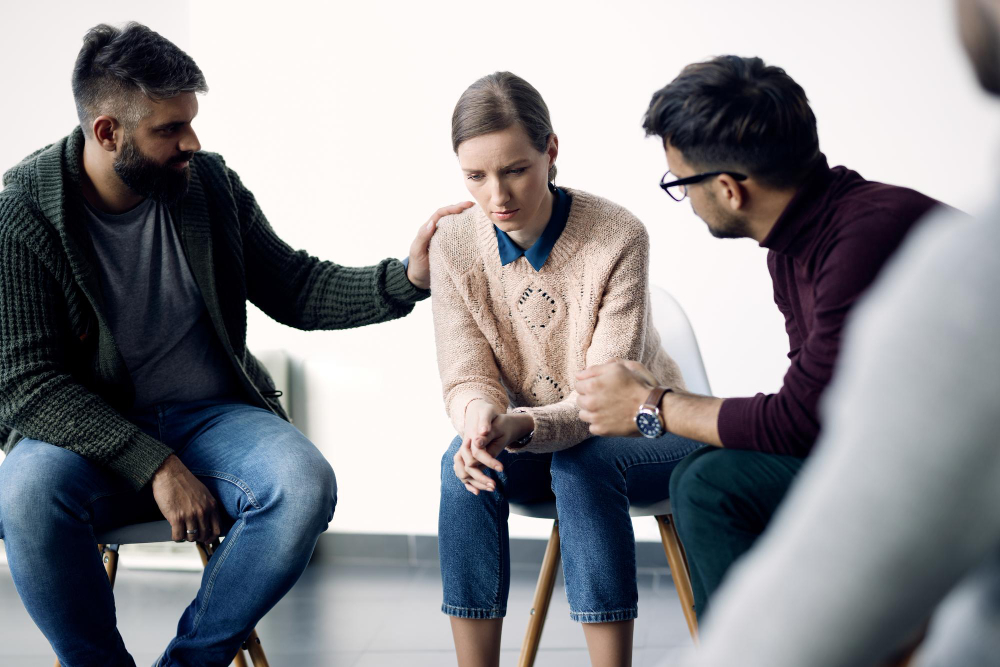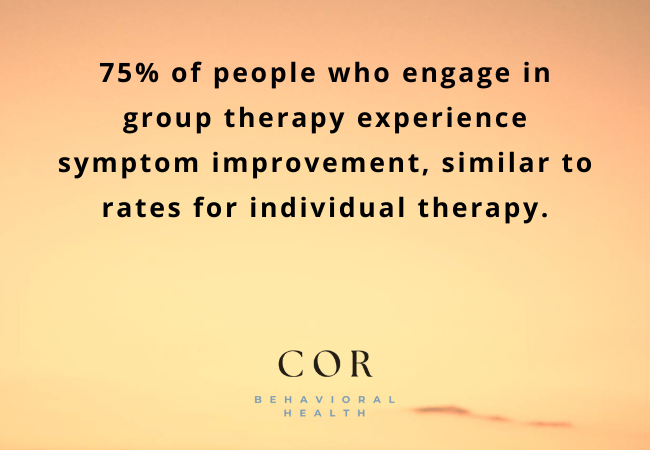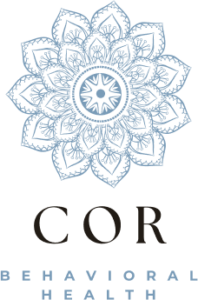
In today’s increasingly digital yet disconnected world, many individuals facing mental health challenges feel isolated, unheard, or misunderstood. Whether it’s anxiety, depression, trauma, or relationship difficulties, this sense of emotional isolation often worsens symptoms—and makes healing seem out of reach.
That’s where Group Therapy becomes transformative. At COR Behavioral Health, we offer evidence-based Group Therapy in Martin County, Florida, alongside Individual Therapy, Partial Hospitalization Programs (PHP), and Intensive Outpatient Programs (IOP). In this blog, we explore how group therapy fosters powerful human connections, builds trust, and strengthens the coping skills needed for long-term recovery.
What Is Group Therapy?
Group therapy is a psychotherapeutic format where individuals meet under the guidance of one or more licensed therapists to explore mental health challenges in a structured, safe, and supportive environment. Each group typically includes 6–12 participants and focuses on a specific theme such as trauma recovery, anxiety management, relapse prevention, or emotional resilience.
At COR Behavioral Health, our group therapy programs are structured to promote growth, healing, and community. These sessions are guided by clinicians trained in trauma-informed care, dialectical behavior therapy (DBT), cognitive behavioral therapy (CBT), and more.
Therapeutic Foundations: Why Group Therapy Works
Group therapy is not just anecdotal—it’s grounded in clinical science. Psychiatrist Irvin D. Yalom, a pioneer in group therapy, outlined core “therapeutic factors” that explain why group therapy leads to measurable improvement.
Yalom’s 5 Core Healing Mechanisms:
-
Universality – Realizing others share similar struggles reduces isolation.
-
Altruism – Helping others fosters self-worth.
-
Group Cohesion – Belonging to a group strengthens motivation and accountability.
-
Interpersonal Learning – Receiving feedback from peers enhances self-awareness.
-
Instillation of Hope – Seeing others succeed gives patients faith in their own recovery.
These mechanisms are activated continuously in our therapeutic groups at COR Behavioral Health.
Building Connection Through Shared Experience
Mental illness often creates a strong illusion of being “the only one.” Many clients describe feeling disconnected from friends, family, and their own sense of identity.
Group therapy breaks this illusion. When individuals share openly in a group, they often hear others express thoughts and feelings that mirror their own. This shared vulnerability creates a bridge—fostering meaningful human connection.
Benefits of Connection:
-
Reduced loneliness and shame
-
Increased emotional validation
-
Formation of healthy social bonds
-
Strengthened self-acceptance through peer support
In group therapy, connection isn’t just an outcome—it’s part of the medicine.
Cultivating Trust in a Therapeutic Community
For many people—especially those with trauma histories—trust is fragile. Group therapy offers a structured environment where trust is slowly, respectfully built.
At COR Behavioral Health, therapists guide the group in establishing shared values:
-
Confidentiality: What’s shared in the room stays in the room.
-
Respect: Every voice is valued, no matter how soft or uncertain.
-
Voluntary Sharing: No one is forced to disclose more than they’re ready for.
-
Equal Voice: There is no hierarchy—everyone has something to contribute.
As participants experience consistent emotional safety, they begin to trust not only the group—but themselves.
Practicing Coping Skills in Real-Time
One of the unique benefits of group therapy is the opportunity to practice coping skills in the moment with real people in a safe setting.
While individual therapy helps build insight and self-awareness, group therapy is like a gym for your emotional muscles—it’s where theory becomes practice.
Skills Developed in Group Therapy:
-
Emotion regulation
-
Distress tolerance
-
Assertive communication
-
Boundary-setting
-
Perspective-taking and feedback integration
-
Mindfulness and grounding techniques
Therapists also lead skills-based groups that follow structured curricula—especially in our Intensive Outpatient Program (IOP) and Partial Hospitalization Program (PHP).
Types of Group Therapy Formats
Not all groups are the same. At COR Behavioral Health, we match each client to a format that aligns with their goals.
Common Formats:
-
Psychoeducational Groups – Learn about diagnoses, triggers, and tools in a structured class-like setting.
-
Process Groups – Explore emotions, life events, and interpersonal dynamics in real-time.
-
Support Groups – Share personal stories and challenges in a peer-led, emotionally validating environment.
-
Skills-Based Groups – Practice DBT, CBT, or mindfulness skills with hands-on activities and role plays.
Each format is facilitated by experienced clinicians who ensure group safety, inclusivity, and progress.
Common Misconceptions About Group Therapy
Despite its proven benefits, group therapy is often misunderstood. Let’s clear up a few myths:
❌ Myth: “I’ll be forced to share.”
✔️ Truth: Sharing is encouraged but never required. You participate at your comfort level.
❌ Myth: “Everyone will judge me.”
✔️ Truth: Group members are often going through similar struggles and are focused on support, not judgment.
❌ Myth: “It’s not as effective as individual therapy.”
✔️ Truth: Research shows that group therapy is just as effective—sometimes more so—especially for building social and coping skills.
How Group Therapy Complements Individual Therapy
Group and individual therapy don’t need to compete—they often work best together.
While individual therapy in Martin County, Florida offers personalized exploration, group therapy enhances that work by building interpersonal skills and real-world confidence.
Integration Is Common In:
-
Partial Hospitalization Program (PHP) – Daily support with multiple group sessions and weekly individual check-ins.
-
Intensive Outpatient Program (IOP) – Flexibility and structure, ideal for step-down care from PHP or inpatient.
By combining modalities, clients benefit from both personal insight and peer-driven growth.

Group Therapy as Part of a Larger Continuum of Care
At COR Behavioral Health, we often recommend group therapy in combination with other services for a more robust treatment plan. These may include:
Individual Therapy in Martin County, Florida
Provides space for deeper personal processing, trauma work, and goal setting. Individual sessions can complement group therapy by helping clients explore insights gained in the group setting more privately.
Partial Hospitalization Program in Martin County, Florida (PHP)
A structured day program offering intensive support for those needing stabilization or transitioning from inpatient care. Group therapy is a core component of PHP.
Intensive Outpatient Program in Martin County, Florida (IOP)
Offers flexible scheduling while maintaining access to therapy, medication management, and peer support. Group therapy is included several days per week.
Together, these levels of care create a comprehensive support system, ensuring each person receives the depth and flexibility they need to recover.
Why COR Behavioral Health?
As a trusted Behavioral Health Treatment Center in Martin County, Florida, COR Behavioral Health offers more than therapy—we offer transformation through connection.
Our Difference:
-
Trauma-informed, licensed group facilitators
-
Multiple group formats based on individual needs
-
Seamless integration with individual therapy, PHP, and IOP
-
A supportive, nonjudgmental atmosphere
-
Proven results through evidence-based practice
We don’t just treat symptoms. We help people rebuild their lives—together.
Conclusion
Healing doesn’t happen in isolation. It happens in circles of trust. In voices that echo your own. In moments of connection that remind you: you’re not alone. Group therapy at COR Behavioral Health gives you the opportunity to be seen, heard, supported, and healed—not in solitude, but in community.
If you’re ready to take the first step toward healing, personal growth, and meaningful connection, we’re here to walk with you. Call COR Behavioral Health at 888.231.7973 to join one of our transformative group therapy programs in Martin County, Florida. You don’t have to face your mental health journey alone—because connection is the beginning of recovery.
Common Questions About Group Therapy
Will I have to share my story in the first session?
No. Sharing is always voluntary. Many clients choose to listen at first until they feel safe enough to speak.
What if someone in the group triggers me?
Our therapists are trained to manage conflict or discomfort safely and constructively. You will always have a voice.
Is group therapy confidential?
Yes. Group members agree to strict confidentiality, and therapists enforce respectful, secure environments.
Can I switch groups if one doesn’t feel right?
Yes. If a group isn’t the best fit, we’ll help you transition into one that aligns with your comfort and goals.



